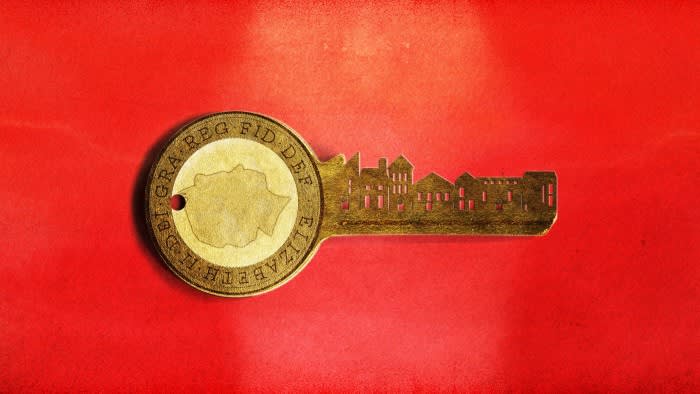Stay informed with free updates
Simply sign up to the UK tax myFT Digest — delivered directly to your inbox.
If the government doesn’t announce tax rises at next week’s Budget, I will eat my hat. If no one complains about it, I will scoff my scarf. And if Labour announces a tax reform universally supported by wonks, I will gobble my gloves. When asked about council tax revaluation during the election campaign in June, the party said that it would be putting its political energy elsewhere. Why won’t the nerds prevail?
It’s not because of the technical difficulty, or because the status quo is good. The English council tax system sorts homes into eight bands, with higher bills for more expensive properties. But those home prices were last calculated in 1991, the year Nirvana’s “Smells Like Teen Spirit” rose up the charts. (I do not personally recall this, because my parents weren’t fans and also I was two.)
Funnily enough, relative house prices have changed quite a lot over the past 33 years, enough for David Phillips of the Institute for Fiscal Studies to note that at least half of all homes are in effect in the wrong band.
The full effects of revaluation are complicated by the fact that council tax revenues are kept by local authorities and topped up by central government grants.
If grants stayed constant, councils in the south where house prices have grown relatively quickly might respond to their broadened tax base by simply lowering their council tax rate, leaving average bills across local authorities unchanged. But if grants were to fall in places where the tax base grows, a revaluation would shrink bills in the north and grow them in the south.
There are three reasons why English politicians have shied away from fixing this unfairness: the fog of confusion; the sting of disruption; and the pain of redistribution.
The confusion boils down to a mix-up over what council tax really is. Whereas economists tend to think of it as a property tax, ordinary people are more likely to see it as a contribution to the cost of running public services. Resistance to change may stem from the argument that although some neighbourhoods have experienced relatively high growth in house prices over the past few decades, the same is not true of their use of bins.
Then there is the disruption. Council tax is a highly salient, widely disliked tax. And one can expect taxpayers to be peeved if their bills change. Perhaps any increases could be phased in gradually, though that comes with a cost. (Possible retorts from the Treasury include “no thanks” and “read the room”.)
The final problem is that fundamentally, revaluation alone would not be a revenue-raising reform.
In 2020, the IFS analysed a scenario where central government top-ups preserved local authorities’ funding and estimated that three-fifths of households would see bill changes of less than £50 a year. Still, squeals are to be expected from the one in nine households who would have to fork out more than £200 a year extra (roughly a sixth of the average net council tax bill).
If winners from revaluation tended to be poorer than the losers, squeezing them might be an easier sell. But the same IFS analysis suggested that reform wouldn’t be particularly progressive, and within each income decile the number of winners and losers would roughly balance out. Because younger people are more likely to live in places like London, where house prices have soared in relative terms since 1991, revaluation could well mean redistribution from young to old.
As for the problem of unfairness in funding across local authorities, the bigger issue is outdated central government top-ups. If grants to poorer areas were more generous, council tax bills in those places could fall.
As the status quo stands, wonks persist in suggesting fixes. In August, Tim Leunig of Onward, a centre-right think-tank, published a neat proposal for a “local proportional property tax” on house values up to £500,000, which would replace council tax. (There would be a tax on values above that to replace stamp duty.)
In the meantime, he suggests raising the progressivity of the system by cutting grants for richer councils and reducing bills for those currently in the cheapest property bands.
Ominously, Leunig also notes that Britain’s first land tax was based on rental yields in 1692, which weren’t updated for 140 years until the tax was scrapped in 1832. Maybe I’ll buy some chocolate sauce to go with my gloves in case my bet about council tax revaluation is wrong. But I’ll pick the sort with a very long shelf life.
Follow Soumaya Keynes with myFT and on X
The Economics Show with Soumaya Keynes is a new podcast from the FT bringing listeners a deeper understanding of the most complex global economic issues in easy-to-digest weekly episodes. Listen to new episodes every Monday on Apple, Spotify, Pocket Casts or wherever you get your podcasts



